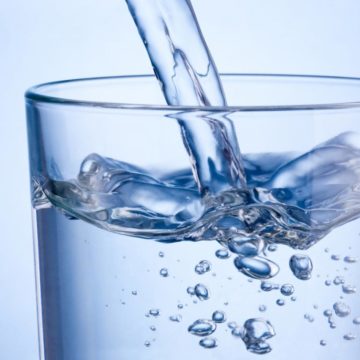
- 30–59% of American adults increase their water intake when trying to lose weight.
- Drinking water before meals can increase the number of calories burned, reduce appetite in middle-aged and older adults, and prevent obesity in children.
- Drinking too much water may also cause water toxicity and lead to death.
Many studies suggest that increasing water intake is beneficial for losing and managing weight. Here’s how water helps with weight loss, according to Weight Watchers Reimagined.
Drinking Water Helps You Burn More Calories
Most of the studies cited below looked at the effect of drinking a 0.5 liter or 17oz serving of water.
According to studies, drinking water increases your resting energy expenditure or the amount of calories you burn. A 24-30% increase in resting energy expenditure that lasts for an hour was seen in adults within ten minutes of drinking water.
One study supports this with their findings that overweight and obese children increased their resting energy expenditure by 25% after drinking cold water.
Another study found that overweight women who increased their water intake to 1 liter (34 oz) per day for 12months lost 2 kg (4.4 lbs) without making any other lifestyle changes.
Other studies of overweight people also found that drinking 1-1.5 liters (34–50 oz) of water daily for a few weeks lost significant weight, body mass index (BMI), waist circumference, and body fat. Drinking cold water may even improve r weight loss results.
Drinking Water Before Meals Can Reduce Appetite

According to one study of middle-aged participants who were overweight or obese, drinking water before each meal lead to 44% more weight loss compared to a group that did not increase water intake.
Another study of middle-aged and older people found that drinking water before breakfast led to a 13% lower calorie intake during the meal. However, the results were not similar for younger individuals.
Drinking More Water is Linked to Reduced Calorie Intake and a Lower Risk of Weight Gain
Water is calorie-free, so it can reduce calorie intake more than other beverages. It can also prevent long-term weight gain. Every four years, the average person gains about 1.45 kg. But you can reduce this amount by increasing your water consumption by 1 cup daily and drinking water instead of other sugar-sweetened drinks. Children are also encouraged to drink more water to reduce obesity. A study found that the risk of obesity dropped by 31% among children in schools where increasing water intake was encouraged.
How Much Water Should You Drink?

Water requirements depend on individual factors. People who sweat a lot need more water than people who are not very active. Keep in mind that you can also get water from fruits and vegetables, meat, fish, and other beverages.
As a general rule, drink enough water to quench your thirst when you’re thirsty. Dehydration may cause headache, lousy mood, hunger, and difficulty concentrating.
The studies suggest that drinking 1-2 liters of water daily can help with weight loss.
Be aware that drinking too much water may also cause water toxicity that may even lead to death.
Via Healthline

